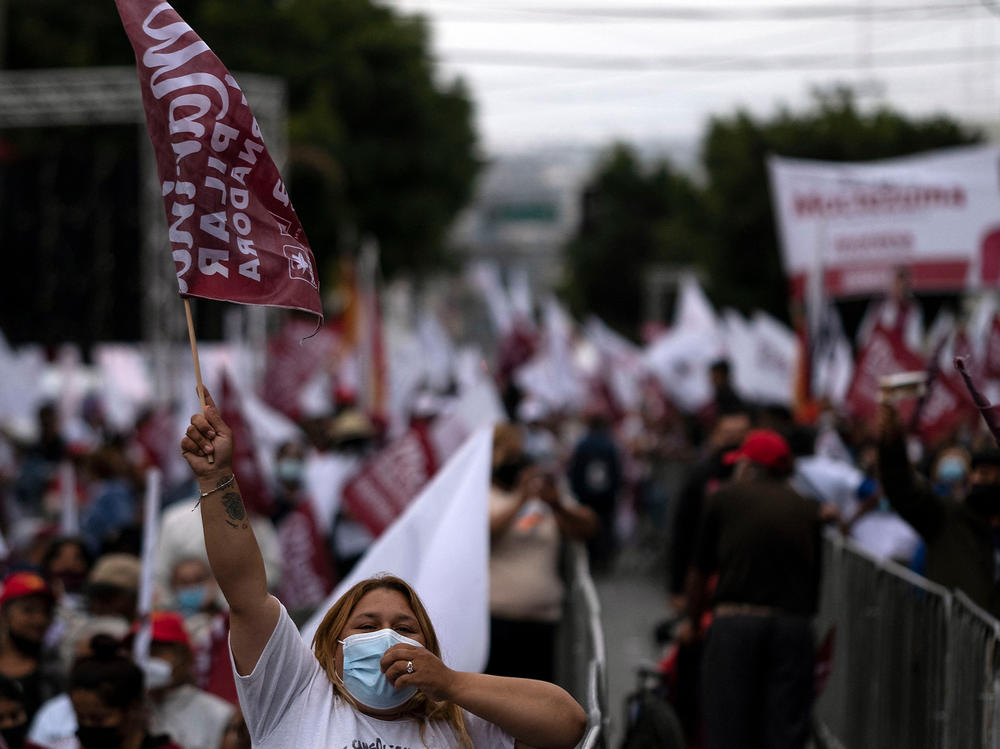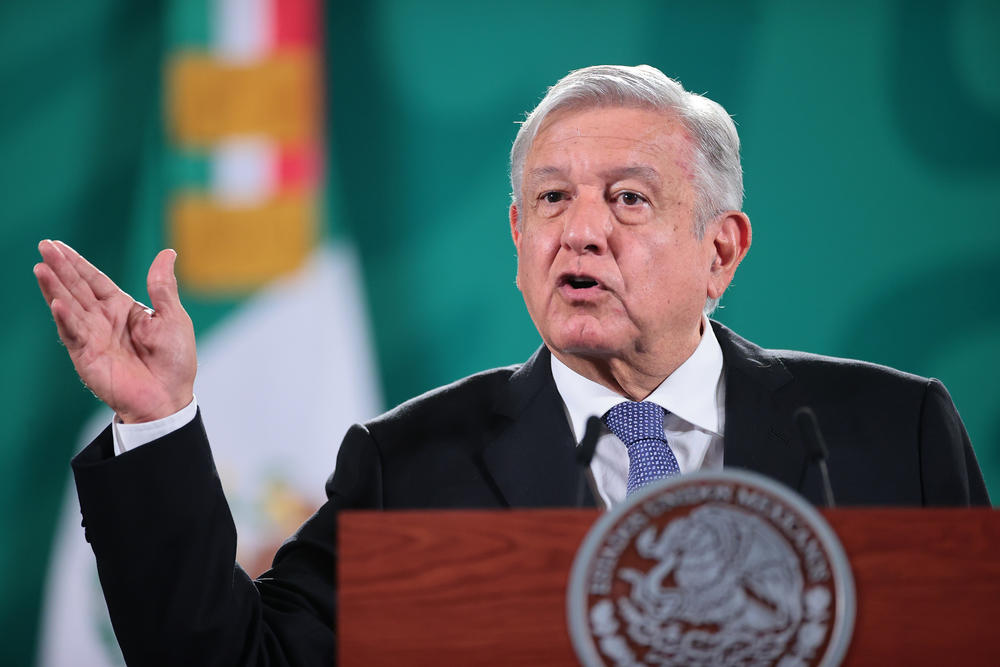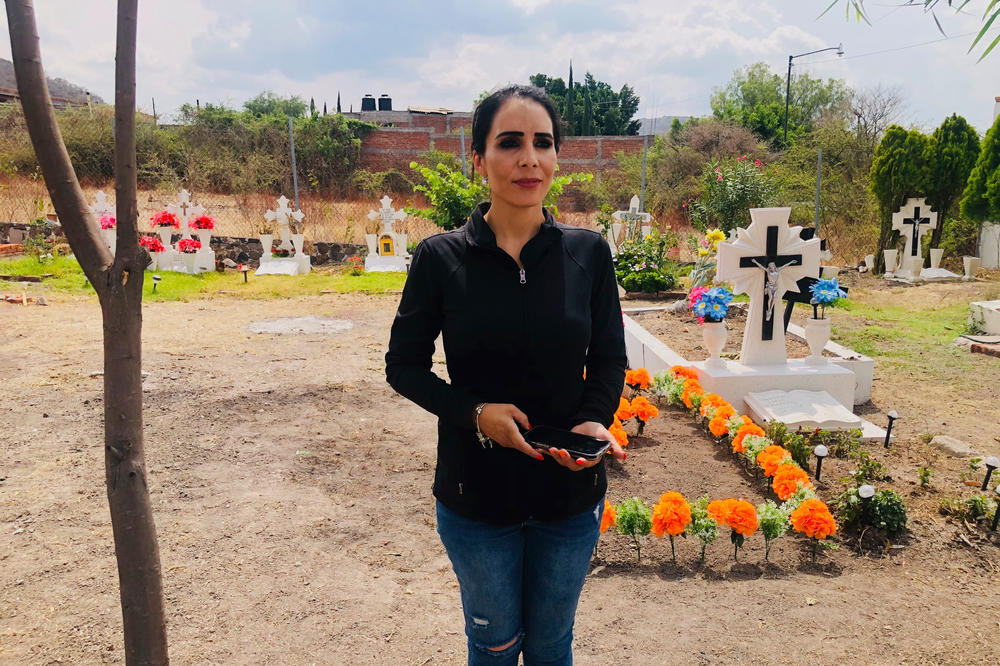Section Branding
Header Content
Mexico Is Holding Its Largest Elections Ever. They're Also One Of Its Deadliest
Primary Content
MEXICO CITY — Mexicans go to the polls this Sunday in the largest elections Mexico has every held, in sheer numbers of posts to fill. This has also become one of the most violent campaign seasons. Organized crime gangs are mainly taking the blame for the killings of 35 candidates so far.
Every seat in the lower house of Mexico's Congress is in play, as well as nearly half of the country's governorships and thousands of mayoral and local legislative posts.
President Andrés Manuel López Obrador is not himself in the running, but the midterms have become a referendum on his populist agenda.
The elections also come as the coronavirus has taken a huge death toll and made a devastating hit to Mexico and its economy.
Turnout will be key, and López Obrador is hoping for a big win for his political allies across the country, which will allow him to continue his self-proclaimed transformation of Mexico. Here's a look at what's at play in the Mexican midterms.
What are Mexicans voting on?
Mexicans will vote to fill more than 20,000 posts. Governor's races are in play in 15 of the country's 32 states. There are more than 1,900 mayoral contests and local legislative races too. Most important, all 500 seats in the lower house of the federal Congress are up for grabs.
López Obrador needs his Morena party to hold onto its congressional supermajority to support his mandate for what he calls the "fourth transformation" of Mexico. Polls show the party probably will: They give Morena over 40% of voter preference for the lower house — more than double that of any other party, according to an analysis by the Americas Society/Council of the Americas.
He also needs his allies to make big wins in local legislatures and to pick up more governor seats if he hopes to pass changes to the Mexican Constitution and roll back more laws that he says are damaging to the underclasses. Currently, six states are run by Morena. Some analysts think the party could win 11 more gubernatorial seats on Sunday, although some races are too close to call now.
The president is not on the ballot. Is he a big factor in the midterms?
López Obrador is nearly halfway through his one six-year term as president, and his performance carries weight in many of the local and legislative races. The president's handling of the coronavirus pandemic, the sagging economy and his struggles to curb relentless violence are top voter concerns.
From the outset of the pandemic, López Obrador downplayed the coronavirus, refused to impose lockdowns and kept testing low. Mexico has the world's fourth-highest death toll from COVID-19, according to Johns Hopkins University data.
He also refused to provide substantial economic support to businesses and workers who lost jobs during the pandemic, saying he didn't want to saddle the country with high debt. A slow-to-start vaccine program has lately picked up steam, leading to dramatic drops in coronavirus cases and deaths and helping the president's popularity.
López Obrador's support base is loyal, and he enjoys a relatively high approval rating of 61%, with polls suggesting Mexicans believe him to be honest and not corrupt. But his government doesn't score as well when it comes to reducing violence and record-high homicide rates.
Since taking office with a landslide win in 2018, López Obrador has pledged to put Mexico's poor first. He insists the solutions to the country's problems are mainly to get rid of past free market policies and crack down on corruption.
His opponents say he's a power-grabbing authoritarian, slashing independent institutions and reversing the democratic march forward. They decry his "hugs, not bullets" non-militaristic approach to fighting cartels and organized crime gangs. Instead, he has handed out scholarships to youth, which he says will keep them out of gangs, raised the minimum wage and increased pensions to seniors.
But he also repeatedly attacks media outlets that he says are working for his political rivals. He has cut funding to independent institutions that provide checks on his power, and he publicly condemns judges who rule against his policy changes. And critics worry about his trend of giving more civilian responsibilities, including administration of the country's ports, to the military.
What's driving the violence in the runup to the elections?
Organized crime gangs and drug trafficking cartels are growing in numbers and infiltrating further into politics in even more parts of Mexico. Politics and crime have long been intertwined in Mexico. "The difference now is that you have a greater amount of criminal actors out there all trying to push into the state, which provides lots of points of frictions and causes and explains why the competition over the state has become so overly voracious these days," says Falko Ernst, a Mexico City-based analyst with the International Crisis Group.
Mexican and U.S. officials estimate that now more than 200 crime gangs operate in Mexico. And crime gangs want their candidates in power so they can control police forces and institutions that might affect their trafficking or their ability to extort businesses. But politicians also use cartels to fund their campaigns so they can get themselves in power and manipulate local contracting to enrich themselves, friends and relatives.
This election cycle is seeing more political parties, more politicians and more criminal gangs all wrangling for power.
There have been hundreds of attacks and 35 candidates killed since last September, according to Etellekt Consultores. If you add political aides, workers and campaign officials, the number rises to 89.
What are the polls saying? Will the president's party come away with a supermajority?
Polls show López Obrador's Morena party will most likely hold onto its supermajority in the lower house or at least come close.
The ruling party usually loses ground in the midterms, but it looks like López Obrador's personal popularity might be enough for Morena to make some significant gains. His party is facing some tough gubernatorial races, especially in the industrial north. And polls in Mexico City show that support for Morena has waned following last month's metro rail crash, which claimed 26 lives and injured more than 70.
Many blame allies of the president, especially the capital's current mayor and her predecessor, for shoddy maintenance and construction of the rail line that collapsed.
Turnout for midterms tends to be lower than for presidential elections. This time could see even lower turnout because of voters' fears over the pandemic and violence, as well as distrust of political parties.
Copyright 2021 NPR. To see more, visit https://www.npr.org.



